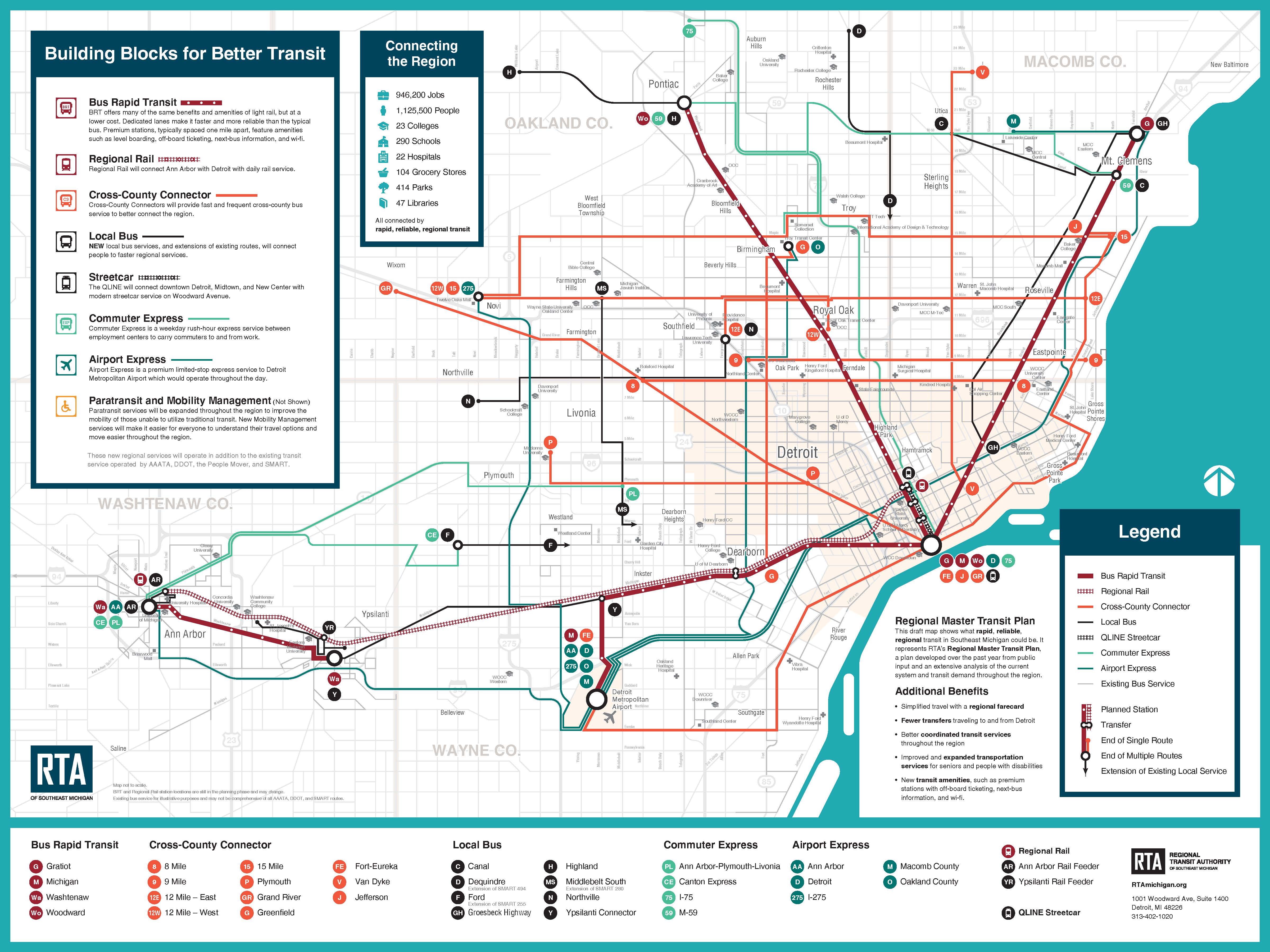ANN ARBOR, Mich. – The Regional Transit Authority (RTA) announced an extensive new plan to connect southeast Michigan on Tuesday, linking Washtenaw County to the rest of metro Detroit and creating a network between universities.
The proposed plan includes a regional commuter rail linking Ann Arbor to Detroit, a Bus Rapid Transit line on Washtenaw Avenue connecting downtown Ann Arbor and downtown Ypsilanti, and creating multiple commuter routes from Ann Arbor to the suburbs of the metropolitan area.
Recommended Videos
In 2018, the first commuter express lines would open connecting Ann Arbor to Canton Township and Livonia, offering students the opportunity to head home for the weekends.
View: RTA Implementation Timeline: 2017 - 2026
The big news is a commuter rail linking Ann Arbor to Detroit, with stops planned in Ypsilanti, Wayne and Dearborn, expected to be complete in 2022. The new regional rail will give students an easy way of coming downtown and provides alumni with an efficient way of heading to games at the Big House.
By 2026, a Bus Rapid Transit route would exist on Washtenaw Avenue between downtown Ann Arbor and downtown Ypsilanti, linking two major universities.
The future transit system would connect southeast Michigan’s universities, making it easier for students to travel between schools and across the metro area. The routes would connect the University of Michigan to Eastern Michigan University, Wayne State University, Oakland University and the University of Michigan – Dearborn.
The RTA’s new plan would link 310 schools, 23 colleges, 22 hospitals and 47 libraries under rapid, reliable regional transit connections.
“You have millennials on one end of the spectrum that don’t want a car, they don’t want the insurance, and they want to have freedom of mobility. You’ve got elder and disabled and the others who want to have that independence,” said RTA CEO Michael Ford. “We have kind of two bookends and then everything else in the middle and in order for us to be thriving, I mean there’s a lot of development happening, but transportation needs to be improved in this region.”
Voters will be asked to consider the $1.2 million property tax increase on Nov. 8.
Details: RTA transit plan: How much will it cost you?
More: Fares are unknowns in RTA's transit plan
View a large version of the proposed plan map here.
Click this map to view the full-screen version:




